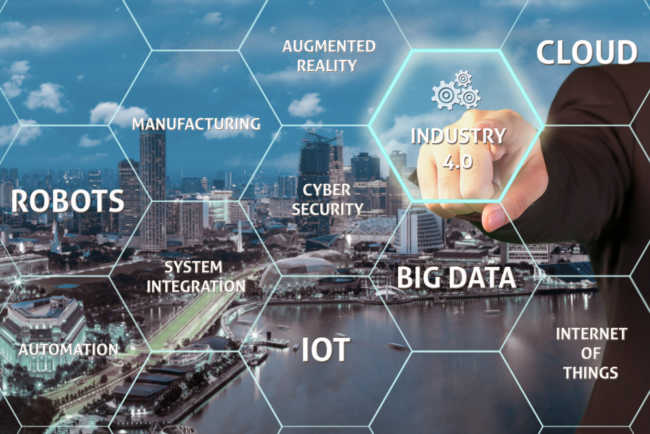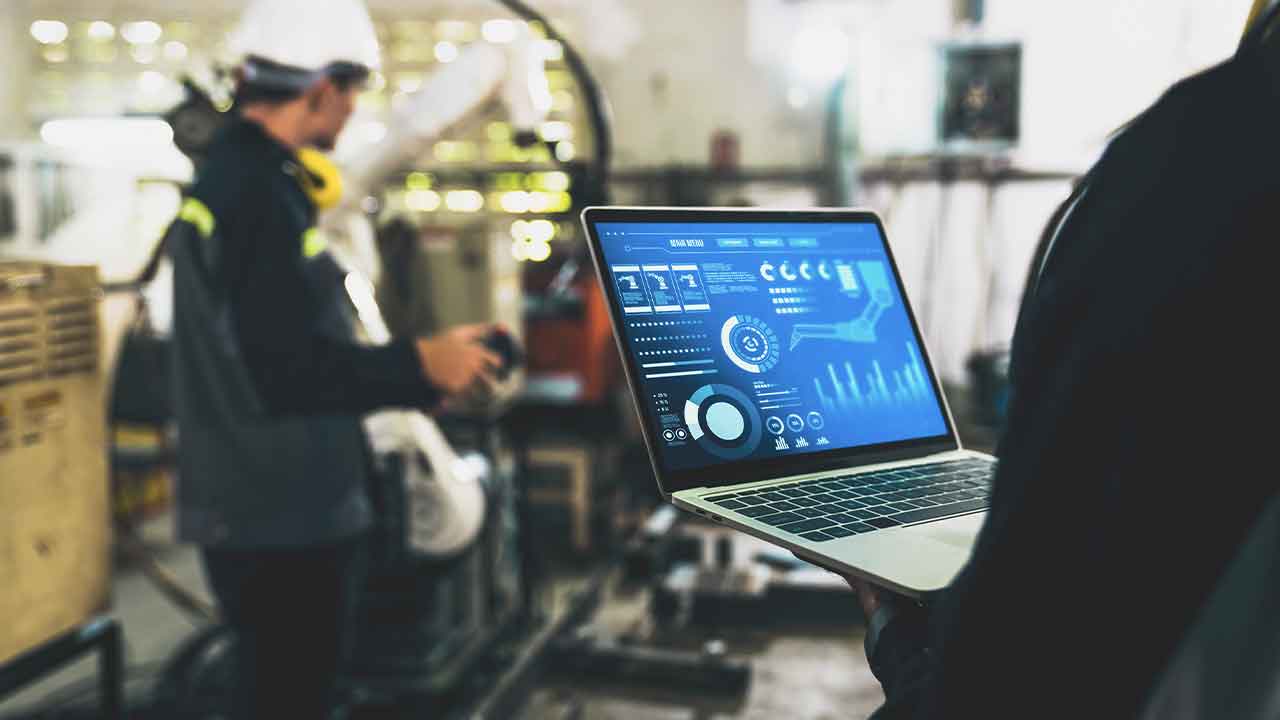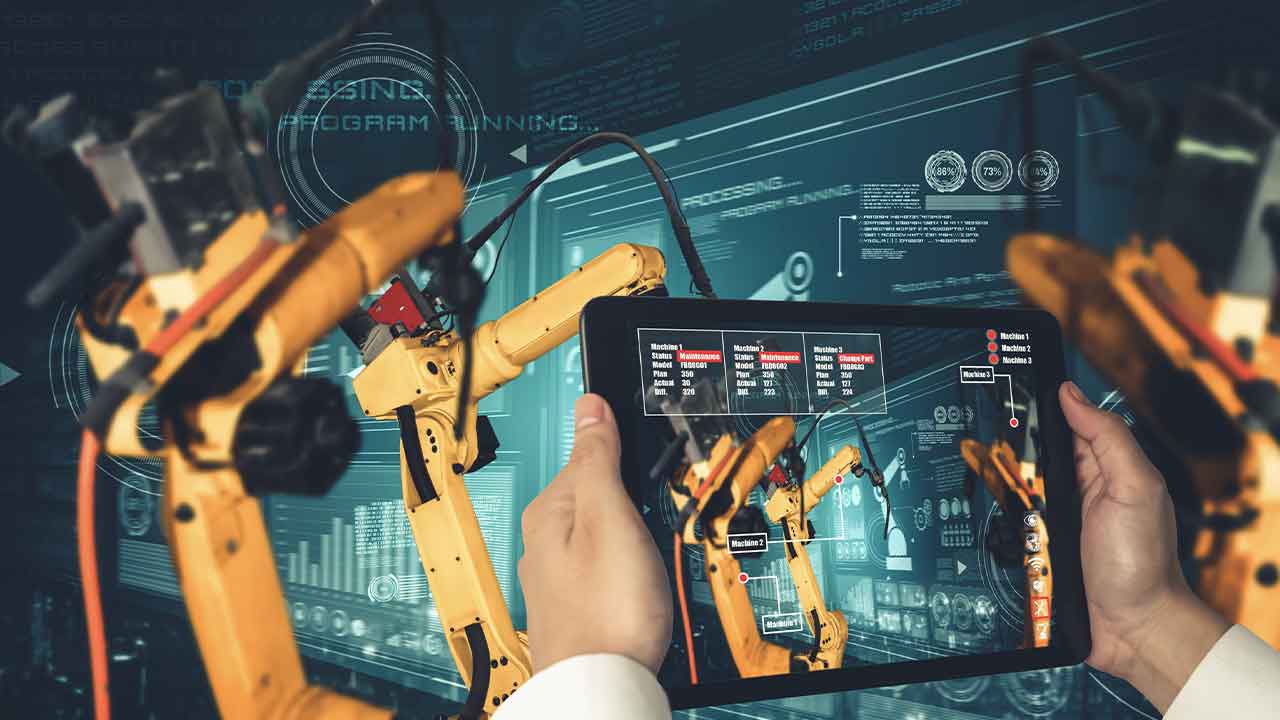IIoT is grabbing headlines for all the right reasons
Since the inception of the Internet of Things (IoT), a slew of connected products is emerging resulting in a drastic change in the way consumers interact with home appliances, cars, electronics, and other types of equipment. Particularly, IIoT Applications have significantly affected industrial implications and as such are being identified in the range of the ‘Industry 4.0 revolution’ or ‘The second digital revolution.’
Industrial Internet of Things (IIoT) is that phenomenon that refines general concepts of IoT and applies them efficiently to major industrial problems such as (but not limited to) availability, quality, productivity, mass customizations and business model innovations.
How has IIoT impacted the global industry?
The buzz around IIoT as a concept is resonating and IIoT is grabbing headlines for all the right reasons. IoT promises to better multiple aspects/assets in a typical industrial set up with minimal capital expenditure and maximum results.
This has attracted manufacturers and major firms as IIoT promises to decrease costs and increase output. IIoT sets the stage for an environment of healthy competition as the applied benefits of IIoT guarantee to surpass Industry expectations. The IoT eco-system can be expected to increase further adoption of technologies in the industrial sector in coming years. Currently, around 52% of industrial manufacturers prioritize IoT for the growth of their business. Predicting a bright future with IIoT, its prominence seems visible and strong in the industrial sector.
A deep dive into the analysis of IoT in view of industrial growth reveals that the main benefits that the industry has gained as a direct result of the impact of IoT are better higher real-time transparency and better collaboration of the employee workforce. Other noticeable benefits include improved productivity, an increased overall effectiveness of types of equipment, improved market agility and positive customer experience. Some of the capabilities of a market which is supported by IoT are briefly discussed below.
- Faster information flow: A number of managers who have deployed the IoT architecture in their business regime have reported that the flow of information within the business applications and the plant are now more lucid. The information silos start to disappear and hence the problem of disconnections within the business and the floor gets evicted. Real-time notifications, business intelligence dashboard and real-time accessibility of shopfloor data on the go have enabled managers as well as engineers to immediately react to changing production needs.
- Excellent operations leading to increased productivity: IoT allows a rebranding of existing factory assets by integrating such assets with actuators and sensors amongst other things. This union allows machines to interface with each other flawlessly, in turn, minimizing human intervention. Further on, this leads to environment based machine adaptability and gives them the capability to raise flags in case of malfunction. The model automatically changes from break-fix to fix-before-break which naturally makes the whole infrastructure more efficient than ever. As a consequence, the efficiency of the equipment increases and the downtime risk decreases drastically. Cost controlling also occurs automatically via the proactive maintenance programs which are reliant on these devices.
Top industrial IoT applied products
The concept of IoT has provided the global industry with lots of applicable ideas which have turned out to be revolutionary in their own way. Let us have a look at few such concepts where IoT has genuinely boosted the global industry manifold.
- Remote Asset Monitoring:
Remote Asset Monitoring, a by-product of one of the finest IoT Applications, is a function through which stakeholders can monitor the presence, functioning, health, and output of their assets that are not located in their immediate vicinity and/or are moving. Types of equipment such as solar panels, water pumps in the field, energy meters, gas pipelines, and much more, irrespective of their location as remote assets can be monitored electronically all the time. This evolution of IIoT enables stakeholders to monitor the health of remote assets, make faster decisions, speed up damage control if any, and be proactive than reactive to situations.
- Condition based monitoring & Predictive maintenance in Factory:
In discrete manufacturing such as automotive or tire manufacturing facilities, machine uptime and performance is key to throughput. Downtime, bottleneck, or out of bound behavior has significant negative impact on the overall cell or plant performance. In-factory asset’s condition based monitoring is in place for decades but runs in silos and not realtime. This has mostly led to more reactive behavior at the plant than any proactive planning. However, with IIoT enabled real-time factory monitoring solutions at hand, now CBM is near real-time with actionable alerts and notifications going out to key stakeholders at right time. With real-time and historical data at hand, production manager, quality head, maintenance team and plant heads are empowered to make data-driven decisions, can predict things, and respond proactively to situations before they occur.
- Oil and gas:
The CAPEX heavy industry of Oil and Gas incurs losses in manifold due to the unpredictability of equipment failure. This problem further becomes extremely complex in the scenario of crude oil procurement. As an example, Oil Rigs that are located in the middle of nowhere are heavily exposed to hazards due to the severe lack of machine condition information. Also, due to their acute remote location, emergency services naturally lag in aiding immediately. As David Marriot of SpectraSymbol recognizes, IoT based solution clearly helps reduce communication errors significantly and improve customer satisfaction. Edge Computing Technology Implementation which is a crucial sub-domain of IIoT is perfect to counter this rather helpless sounding situation. Edge Computing IoT Applications allows computing to be placed at the machine source providing real-time monitorable data irrespective of the connectivity factor. Accumulated data can be later analyzed to derive comprehensive insights about equipment performance over a timeline. Over a period, data analysis will make it possible for field engineers to predict Oil Rig equipment performance, get their hands on real-time statistics and hit the panic button beforehand if need be.
- Smart Cities:
Elements in an entire city can be inter-connected via IoT. Imagining buildings being connected to sources that regulate water, maintenance, supplies et al. seems like a surreal concept. Not anymore as projects of such nature are already in the pipeline. Eventually, as city information accumulates it will make possible Information Technology Infrastructure and machines to function on their own, without operator assistance to send back crucial information, replenish, provide warnings etc. A city’s machinery as a result of the same will function in accord, enriching the quality of life and serving as a model for futuristic projects. Citizens of several countries like India suffer from poor quality of electricity. Initiatives like WatchYourPower powered by IoT technology are a way forward to monitor, measure and move electricity revolution in the right direction. Although its just a beginning, smart cities will drive the birth of entire unthinkable businesses, such businesses aligned to work for hand in glove with their originator.
Conclusion
Once IIoT reaches its full bloom it can probably give a whole new trajectory to all the innovative ideas circulating in the industry. The productivity, maintenance, security and efficiency of all the industrial aspects can be boosted with the correct implications of acute IoT technologies. The foundation of Industrial IoT has been laid accurately and it is up to us to ensure that its development happens in the right direction.
 This article was written by Vinay Nathan, the Cofounder & CEO at Altizon Systems, the Industrial IoT Company. He is a strategic thought leader with 15+ years of global expertise in corporate sales and engineering. Vinay is frequently quoted in leading publications for his views on technology, trends and industry insights regarding the Internet of Things. Prior to founding Altizon, Vinay headed sales at Persistent Systems for North America and APAC region.
This article was written by Vinay Nathan, the Cofounder & CEO at Altizon Systems, the Industrial IoT Company. He is a strategic thought leader with 15+ years of global expertise in corporate sales and engineering. Vinay is frequently quoted in leading publications for his views on technology, trends and industry insights regarding the Internet of Things. Prior to founding Altizon, Vinay headed sales at Persistent Systems for North America and APAC region.



